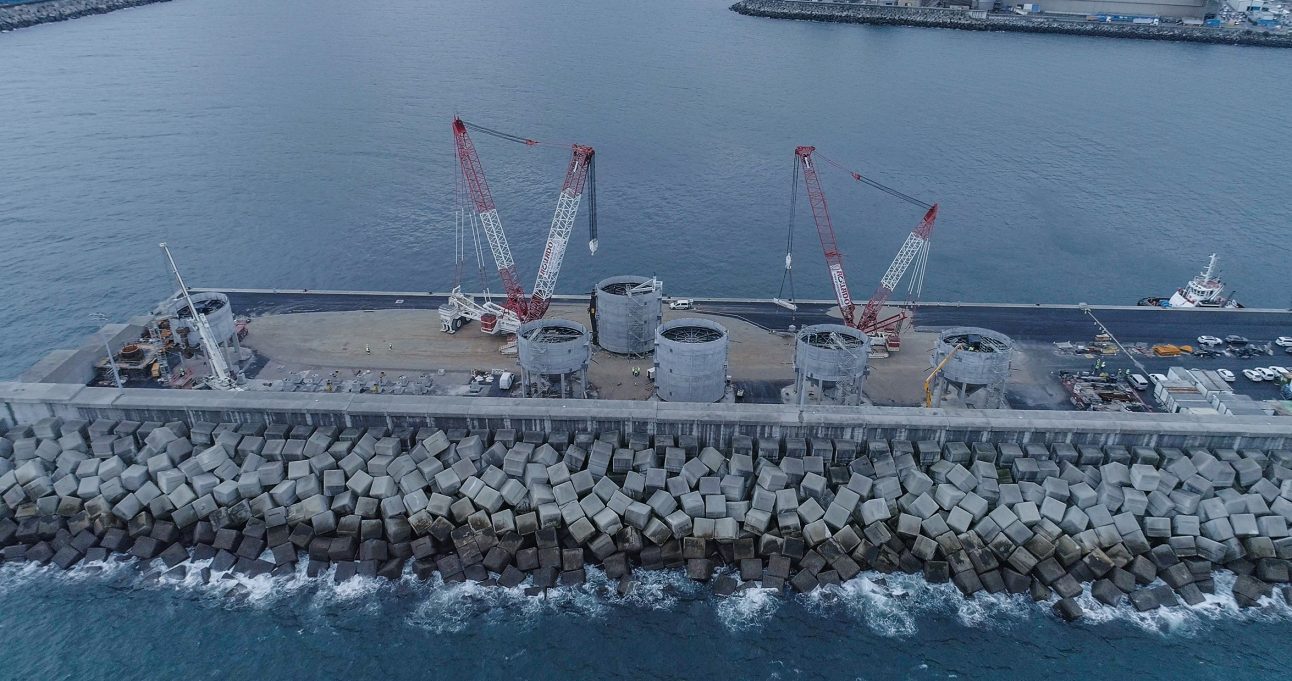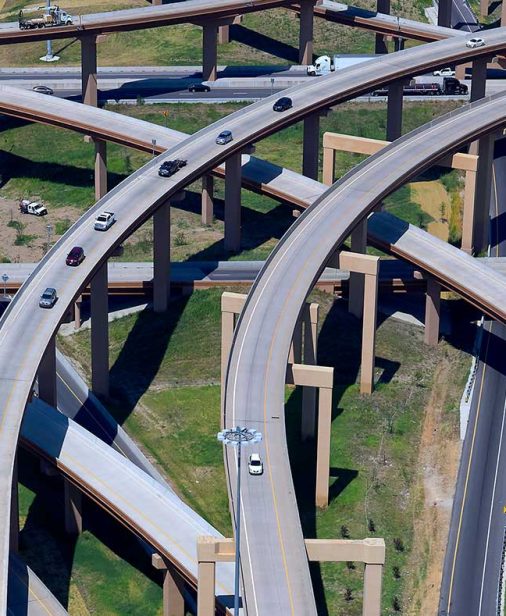-
1. Management Report 2021
- 1.1 In two minutes
- 1.2 Strategy and value creation
- 1.3 Ferrovial in 2021
- 1.4 Risks
- 1.5 Corporate Governance
- 1.6 Expected Business Performance in 2022
-
Appendix
- Alternative Performance Measures
- Sustainability Management
- Reporting Principles
- European Taxonomy
- Task Force on Climate Related Disclosures
- Scoreboard
- Contents of Non-Financial Information Statements
- SASB Indicators
- GRI Standard Indicators
- Appendix to GRI Standards Indicators
- Glosary of Terms
- Verification Report
-
2. Consolidated Financial Statements 2021
- Consolidated Financial Statements
- Audit Report
Energy Infrastructure and Mobility
Sustainable business
Ferrovial has created the Energy Infrastructure and Mobility business unit to promote and develop new sustainable business opportunities and coordinate existing initiatives.
PHOTOVOLTAIC SOLAR ENERGY
TRANSMISSION LINES
ZITY
The company is committed to the search for business opportunities beyond its traditional activities, focusing on projects where it can provide a differential value, responding to the changing habits of the urban population.
ASSETS
In Mobility, Ferrovial has a 50% stake in Zity, an electric carsharing service, in collaboration with Renault and operating in Madrid and Paris, as well as a minority stake in MaaS Global, a leading mobility platform company in Europe. Zity has a fleet of 1,250 fully electric vehicles recharged with electricity from renewable sources. At the end of the year, Ferrovial acquired a minority stake in Inspiration Mobility, a US company whose business consists of investing in electric vehicle-related assets in the US, including the vehicles themselves, as well as associated charging infrastructure.
In Energy Infrastructure, Ferrovial has a transmission line in operation in Chile which was acquired in 2016, and two other assets under construction: the Centella project, also in Chile, and a 50 MWp photovoltaic plant in southern Spain.
The teams of these projects have been integrated into the new business unit, also incorporating other senior professionals with relevant experience in the sector, as well as Ferrovial managers.
Electricity self-supply in Spain and Portugal
Ferrovial, in its efforts to expand into new business models more respectful of the environment, has reached an agreement with InfraRed Capital Partners to acquire 100% of the capital of the company that owns the permits, licenses and authorizations required to build and operate a 50 MWp photovoltaic plant in Gerena, Seville (Spain).
The contract includes the installation of more than 90,000 bifacial photovoltaic modules on single-axis trackers, which, together with its location in an area of high solar radiation, will enable the plant to inject an estimated production of 105 GWh/year of electricity (2,104 MWh/MWp) into the grid, equivalent to the consumption of approximately 26,000 homes. The installation will also contribute to avoiding the emission of more than 46,000 tons of CO2 per year.
The project, which is being carried out by Ferrovial Construction Energy, will be commissioned in early 2023 and will generate around 260 direct jobs.
Most of the plant’s electricity production will be used for Ferrovial’s electricity consumption, which, in this regard, is progressing towards the achievement of its sustainability and decarbonization targets, which include 100% of the group’s electricity consumption coming from renewable sources by 2025.
STRATEGY
The strategic guidelines in Mobility and Energy Infrastructure share similarities. Ferrovial aims to be a preferred industrial partner, able to leverage its experience and add value in the development, financing, construction, operation and rotation of assets, taking advantage of business opportunities while maintaining a risk-benefit balance similar to the other business units. Likewise, through internal resources and participation in technological and industrial ecosystems, the aim is to anticipate rapid changes in the environment and promote and invest in technologies with opportunities for growth, as well as the application of innovation for the development of new profitable business models.
The activity will focus on Ferrovial’s preferred geographies, especially the USA, Spain, Chile and Poland, and will become an active part of the company’s ESG strategy, promoting the fight against climate change and decarbonization, always in line with the Horizon 24 Strategic Plan.
POTENTIAL BUSINESS EVOLUTION
The future of mobility and energy infrastructures depends to a large extent on four rapidly evolving trends:
- National, regional and local regulation on economic incentives or disincentives to CO2 production, use of public spaces, planning regulation and rights to energy assets, etc.
- Social changes driven by growing awareness of climate change and the shift in individual preferences to more personalized services. This trend has been accelerated by the COVID-19 pandemic.
- Variations in asset costs due to technological advancement that have been disrupted by rising inflation, shortages of certain components and logistical stresses.
- New products, services and business models fostered by technological and process innovation.
Despite the unpredictability of the evolution of these four issues, there is a certainty of growing electrification and a different concept of personal mobility, especially in cities.

DemoSATH floating offshore wind platform, Bilbao, Spain.
